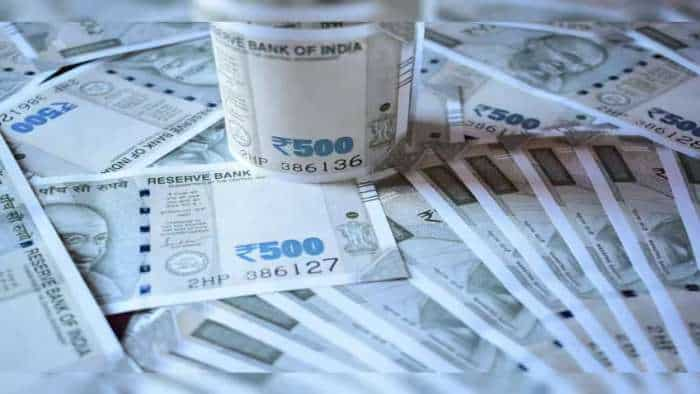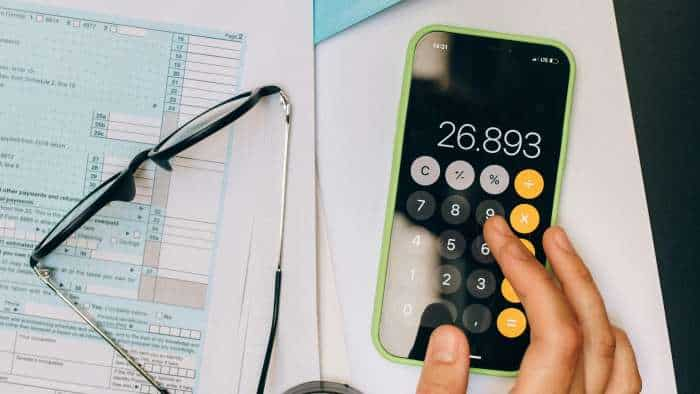Credit Card: Can I pay one credit card bill from another credit card?
You can pay the bill of one credit card with another by utilising balance transfer, obtaining a cash advance, or utilising e-wallet.
)
Credit Card Bill Payment: A credit card helps you purchase things and pay bills even if you don't have money. It also helps you buy costly things on installments (EMIs) when you don't have sufficient money to purchase them in one go. While a credit card can facilitate you in your hard time, it is also necessary that you pay your credit card on time, or else you may invite heavy penalties from the card issuer in the form of an interest rate and a late payment fee. The penalty fee can sometime outscore your actual credit card bill. While you need to have a sufficient balance in your account to pay the credit card bill, one thing that strikes most of our minds is whether it is possible to pay one credit card bill with the help of another credit card.
Also Read | CIBIL score: I have never taken a loan, can my credit score still be affected?
How to pay the bill of one credit card with another credit card
Most credit card issuers don't offer the facility of paying a credit card bill with another credit card.
While there are a couple of credit card issuers that have such a facility in place, availing it may lead to additional fees and higher interest charges that may make your financial situation worse.
However, if you still want to use the credit card to make a credit card payment, you can do it in three different ways.
- By utilising balance transfer
- By obtaining a cash advance
- By utilising e-wallet
Credit card payment via balance transfer
In this type of method, you can transfer the outstanding amount of your credit to another credit card with a higher limit or a lower interest rate. It can give you extra time—up to six months—to pay your bill at some extra balance transfer fee.
However, there are some banks that also waive the balance transfer fee. There are a few things to keep in mind before transferring your credit card balance.
The balance transfer may also affect your Cibil score
You might have to pay the balance transfer fee
You need to be careful that the credit card you are transferring the balance to has a limit large enough to adjust the transferred amount.
Credit card payment through cash
In this option, you use your credit card to withdraw cash from an automated teller machine (ATM).
Deposit that money in your bank account, and then pay your credit card bill online.
However, this is the riskiest method to pay your credit card bill as the interest rate on withdrawing money from an ATM through a credit card is quite high and may cost you dearly in the long term.
Credit card payment through e-wallet
In this facility, you can transfer an amount from your credit card to an e-wallet or your bank account.
Platforms that allow this type of transfer generally charge a fee of 2 per cent.
While it allows you to make credit card payments, your overall credit card bill exceeds that because of the platform fee.
Conclusion
Thus, we see that you can pay one credit card bill through another credit card bill via balance transfer, withdraw cash from an ATM, deposit that in a bank account and pay the bill, and transfer the amount into an e-wallet or a bank.
While these methods provide some convenience, they increase your overall credit card bill amount, triggering the possibility of a larger debt.
It is advisable that you follow usual methods to pay the credit card bill on time.
Get Latest Business News, Stock Market Updates and Videos; Check your tax outgo through Income Tax Calculator and save money through our Personal Finance coverage. Check Business Breaking News Live on Zee Business Twitter and Facebook. Subscribe on YouTube.
RECOMMENDED STORIES

Power of Compounding: In how many years, investors can achieve Rs 6.5 cr corpus with monthly salaries of Rs 20,000, Rs 25,000, and Rs 30,000?

Hybrid Mutual Funds: Rs 50,000 one-time investment in 3 schemes has grown to at least Rs 1.54 lakh in 5 years; see list

18x15x12 SIP Formula: In how many years, Rs 15,000 monthly investment can grow to Rs 1,14,00,000 corpus; know calculations
02:32 PM IST










 UPI transaction volume expected to rise to 439 billion by FY29: PwC India report
UPI transaction volume expected to rise to 439 billion by FY29: PwC India report Will I be denied loan because of poor Cibil score? Is having no Cibil score good for my financial health? Clear your doubts here about your credit score
Will I be denied loan because of poor Cibil score? Is having no Cibil score good for my financial health? Clear your doubts here about your credit score HDFC Bank's new credit card offers customers to decide their billing cycle, reward points and cashback; know more about it
HDFC Bank's new credit card offers customers to decide their billing cycle, reward points and cashback; know more about it Credit Card Cash Advance: What is it? How its misuse can lead you to significant losses?
Credit Card Cash Advance: What is it? How its misuse can lead you to significant losses? LIC Cards, IDFC First Bank, Mastercard collaborate to launch co-branded credit card
LIC Cards, IDFC First Bank, Mastercard collaborate to launch co-branded credit card